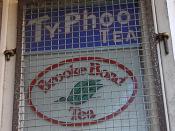Tea is one of the most popular hot beverages in the world and the demand is always increasing day by day. Tea is drunk by hundreds of million people around the world in every continent and the amount drank everyday is on a colossal scale. The market is ever increasing and there are no shortages of tea manufacturers. Today there are only a handful of tea producers that actually dominate the market i.e. PG Tips, Typhoo and Yorkshire are predicted to account for 57.9% of the market between them in the UK.
The most successful company out of the few in Britain is Brooke Bond also responsible for the brand PG Tips. Arthur Brooke, the founder of the company, opened his first shop in Manchester in 1869. He developed his own blend of teas which soon became known for their quality - a reputation which spread far and wide and still holds true today.
Today the operations have expanded into many continents and still going strong.
There are various other brands to choose from and there are no shortages of substitutes, below is a table of other possible substitutes:
UK Company
Typhoo
Yorkshire
Quick Brew
Brook Bond D
Own label
Others
The tea market is very competitive and is relatively elastic, if PG Tips raised their prices 20p more customers would more likely go for a substitute like Typhoo Tea as in theory they would be cheaper.
Table: UK Tea Market Value: Pounds Mn, 1995-1999
Market Value Pounds Mn % Growth US$ Mn
1995 578.8 933.5
1996 588.0 1.6% 948.4
1997 595.0 1.2% 959.7
1998 585.6 -1.6% 944.5
1999 592.1 1.1% 955.0
2000e 593.0 0.2% 956.5
CAGR, 1995-1999: 0.6%
The demand for tea in the UK grew by 1.1% in 1999, to reach a value of Pounds 592.1 million.
The above supply and demand graph shows how the demand has increased and the affect it has on price and supply. The increase in demand is usually down to an increase in income. This means Brooke Bond may be able to sell more of their products at a given price or charge higher price. If income falls, the demand curve would shift inwards and the quantity demanded may fall. If the price of a rival's price goes up, customers may be more willing to buy more this product. If the rival's price fall customers may reduce demand for this product. The changes in taste can also effect as some may switch from coffee to tea and visa-versa.
The supply on the other hand has decreased by 2.1% in 1999, to reach a volume of 115 million-kg.
Market Volume Kg m % Growth
1995 113.3
1996 114.7 1.2%
1997 119.7 4.4%
1998 117.2 -2.1%
1999 114.7 -2.1%
2000e 117.5 2.4%
CAGR, 1995-1999: 0.3%
The shortage is usually down to a sudden increase in demand, this can occur if the coffee market has a poor year and harvesting prices would increase due to coffee beans shortages. Consumers would therefore react to this price rise by substituting tea for coffee. Another factor that could cause shortages is natural disasters. Most of the tea around the world is grown in India, during the monsoon season the crop could be affected by excessive floods and land slides could destroy thousands of ã's tea leafs.
Supply can affect demand. If Brook Bond invented a revolutionary invention that could produce better tasting tea and could grow tea leafs rapidly without the use genetic modification, demand would increase substantially as this new product would additional on the demand for the regular product. Supply would increase, as it is quicker to grow the new tea than the old. The idea is there wouldn't be any shortages by using the latest technology.
Globalisation is when an organisation spread their operations across the world to get the benefits of cheaper supply and larger profits. In Brook Bondôs case they have expanded their operations in every continent from South America to eastern Asia, Brook Bond currently account for 39.9% market value in the UK market alone and similar success abroad is becoming ever more true. Their success is depends on their crop, Brook Bond currently have ten different tea growing regions across the world in order to meet the demands of the customers. By having so many tea fields around the world this means the lower supplies cost, as most of the tea growing countries are third world countries the labour is also very cheap. Brook Bond competes in many countries, they have to compete against other national companies this require a lot promotion and market research. Every country has different tastes in order for Brook Bond to compete successfully they would have to adapt into every country. A good example is UK PG Tips, the tea leafs are from India as that is the taste the British prefer, Brazil on the other hand prefer Brazilian tea leafs as that is taste they prefer.


